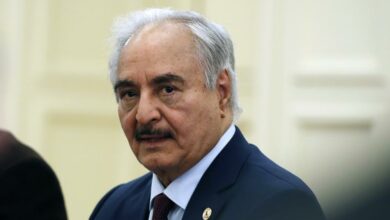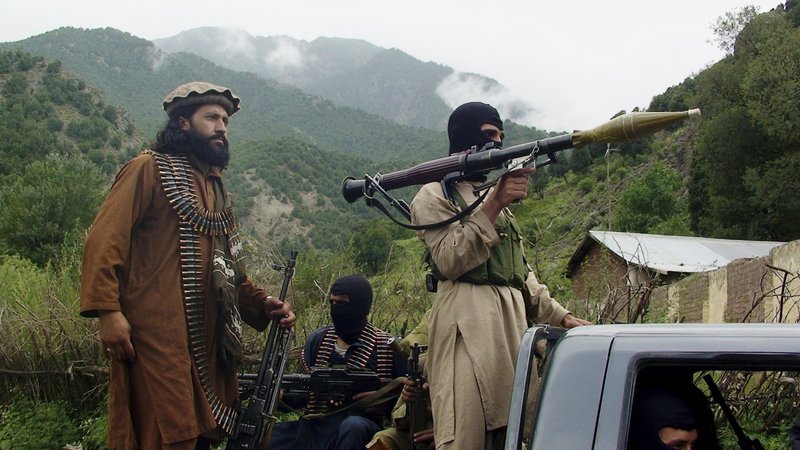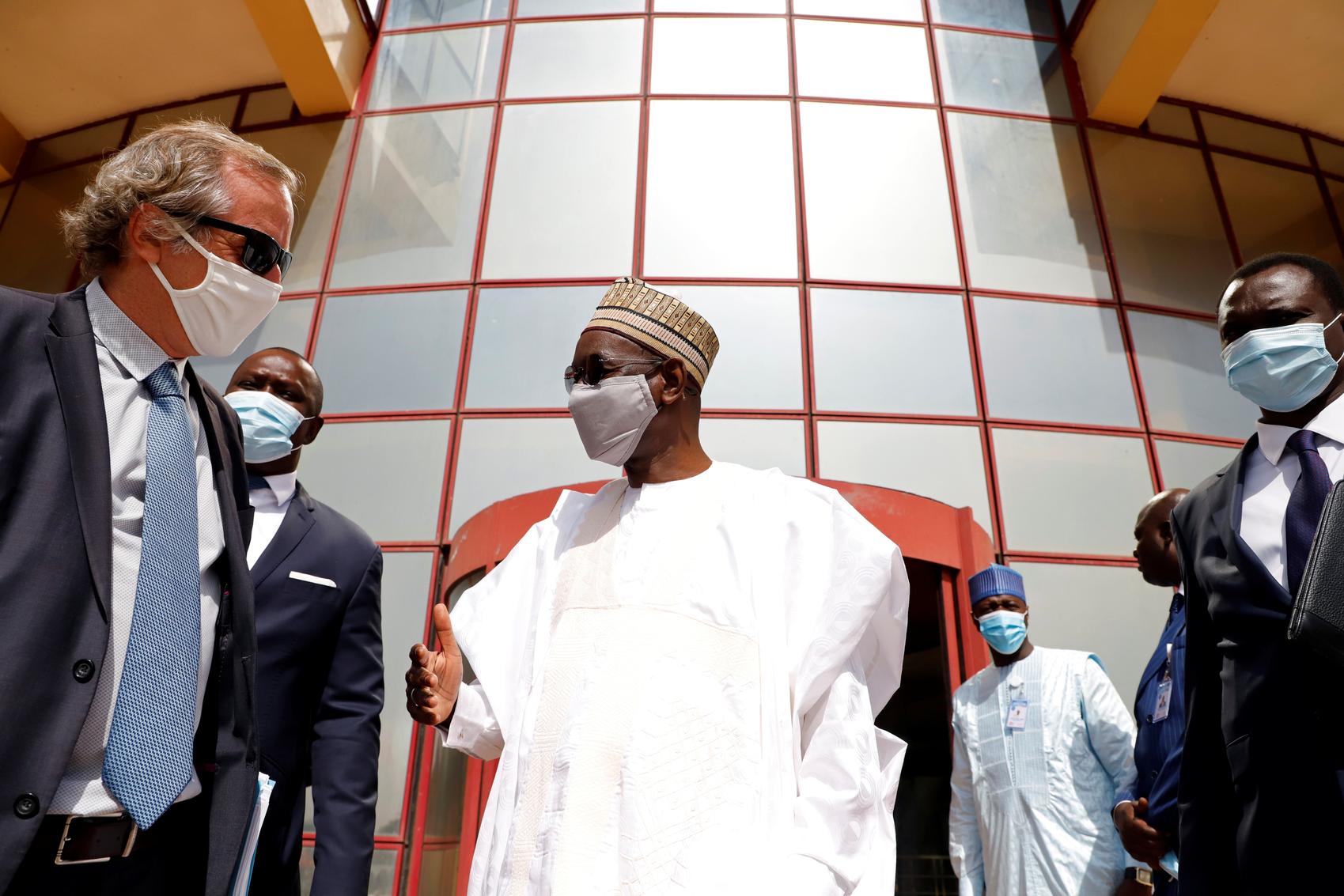Basem al-Zarqa, a prominent Salafi preacher and one of President Mohamed Morsy’s circle of advisers, was asking me to pray in preparation for judgment day.
“You are Christian and I am Muslim, we believe in a day of judgment,” says Zarqa.
“On this day, the one who is correct will enter paradise, and the one who is incorrect will go to hell. I just ask you to pray to God and request of him that the one who is incorrect convert to the religion of the one who is correct.”
It was an unconventional though perhaps appropriate end to an interview that had focused on Salafi attitudes toward the draft constitution and liberal opposition, after two weeks of Islamist political forces scrambling to secure the charter's ratification by popular referendum on 15 December.
Zarqa is a member of the Constituent Assembly that drafted the contentious constitution and is one of Morsy’s advisers, some of whom have resigned in the wake of the president’s controversial 22 November constitutional declaration.
He offered a rare insight into the thinking of the religious hardliners influencing Morsy’s actions from the Muslim Brotherhood’s right wing.
Four of Morsy’s advisers resigned Wednesday evening, as a political standoff escalated into fatal clashes outside the presidential palace between supporters of the president and his opponents, resulting in at least five deaths and hundreds of injuries.
More than 20 members of the Constituent Assembly the constitution had previously resigned to express discontent over Islamist influence.
Zarqa, like others in Morsy’s administration, had no patience for the opposition figures who walked out in protest.
“If you object to something you have to support [this stance] with evidence. The liberals have nothing to say in this regard,” he says. “After months of painstaking negotiation, we arrived at a broad agreement on everything except those articles related to Islam and Islamic Sharia.”
The opposing sides had come so close, in Zarqa’s telling, that even Amr Moussa, the former Arab League chief who ran against Morsy in the presidential election, had sent the administration comments on the penultimate draft.
Zarqa found the liberals’ “last minute” withdrawal unusual. His view, shared by many in the Brotherhood, is that they negotiated in bad faith from the start.
In fact, Zarqa claims, some liberal members had prior knowledge of a plot to abort the Constituent Assembly in collaboration with corrupt state institutions.
He pauses, perhaps weighing his accusation, one that has been floated publicly by Morsy and other party officials.
“I don’t like to talk about the judiciary or the constitutional court. I am not saying this is my view, but some believe this was planned from the start.”
Zarqa believes liberals cannot overcome their basic flaw: that Egyptians don’t like or support them.
“When we entered the parliamentary elections, the true size of the political powers in Egypt was revealed; the Islamic tendency is a clear majority in the street and the liberals aren’t popular,” he says.
A lack of electoral success forced the liberals into undemocratic measures, allying with former members of the Mubarak regime to regain lost ground, he argues. Those maneuvers have included applying pressure from friendly media outlets, which Islamists perceive as biased against their cause.
“There are groups within the media hostile toward either the revolution or to Islamism generally, and some of them are from the previous regime. …I won’t mention any names because of my position but the Egyptian street knows who I’m talking about,” he adds.
The liberal position has become more antagonistic, according to Zarqa, since a simple media strategy cannot succeed in changing what he described as the basically Islamic nature of Egyptian society.
Sympathetic journalists cannot overcome what Zarqa sees as the liberals’ Achilles heel: that they are not authentically Egyptian.
“The first Western person in our country was secular, so the secular person is a follower of Western civilization,” he says. This basic fact makes liberals weak, in Zarqa’s view, and explains their hostility to the country's first Islamist presidency.
To garner public support, he says, secularists are now targeting the presidency, hoping to weaken Islamists in the process.
Providing a counterpoint to opposition activists who point out that the Brotherhood often transports supporters into Cairo for demonstrations, Zarqa goes further to allege that protesters who have massed in Tahrir Square for two consecutive weeks are paid by former members of the Mubarak regime.
“I have names in every province of who is responsible of importing these people to the square to demonstrate. … The size of this demonstration is not real, but financed by known businessmen — so this isn’t a demonstration,” he says.
He likens liberals — “secularists” in his words — to Arabs in the pre-Islamic era.
“When an Arab was in the desert, he would make an idol from dates to worship, and would worship it as a God, but when he got hungry, he would eat his God. The secularists are exactly the same, they sanctify democracy until they get hungry, and then they eat it.”
To Zarqa and those in the administration who share his views, Islamists are the true democrats, and their majority at the ballot box will decide the future shape of governance.
“Is it possible to abolish the result of a democratic process in democratic philosophy? …The civil powers can never accept they have no popularity at the ballot box … they take away any value these elections have,” he says.
Basic unpopularity and lack of roots nationwide make liberals here, in Zarqa’s view, supportive of a flavorless democracy where voting changes nothing.
Lacking the ability to impose their views through elections, Zarqa accuses of liberals wanting “Mubarak’s democracy.”
“The secularists make themselves the deciders of an absolute right that they impose upon the Egyptian people … [but] who becomes the decider? The people.”
Zarqa believes that Egyptian liberals’ disinterest in real democracy has led them to use the rent-a-protest strategy, rely on foreign support and halt real change through the power of regressive state institutions.
The view is radically different from the opposition perspective, and it is hard to see much space for dialogue, but the inflammatory rhetoric is certain to continue.
“They know well we love our country more than them. We aren’t agents of America, and we don’t take money from anyone,” Zarqa claims.




